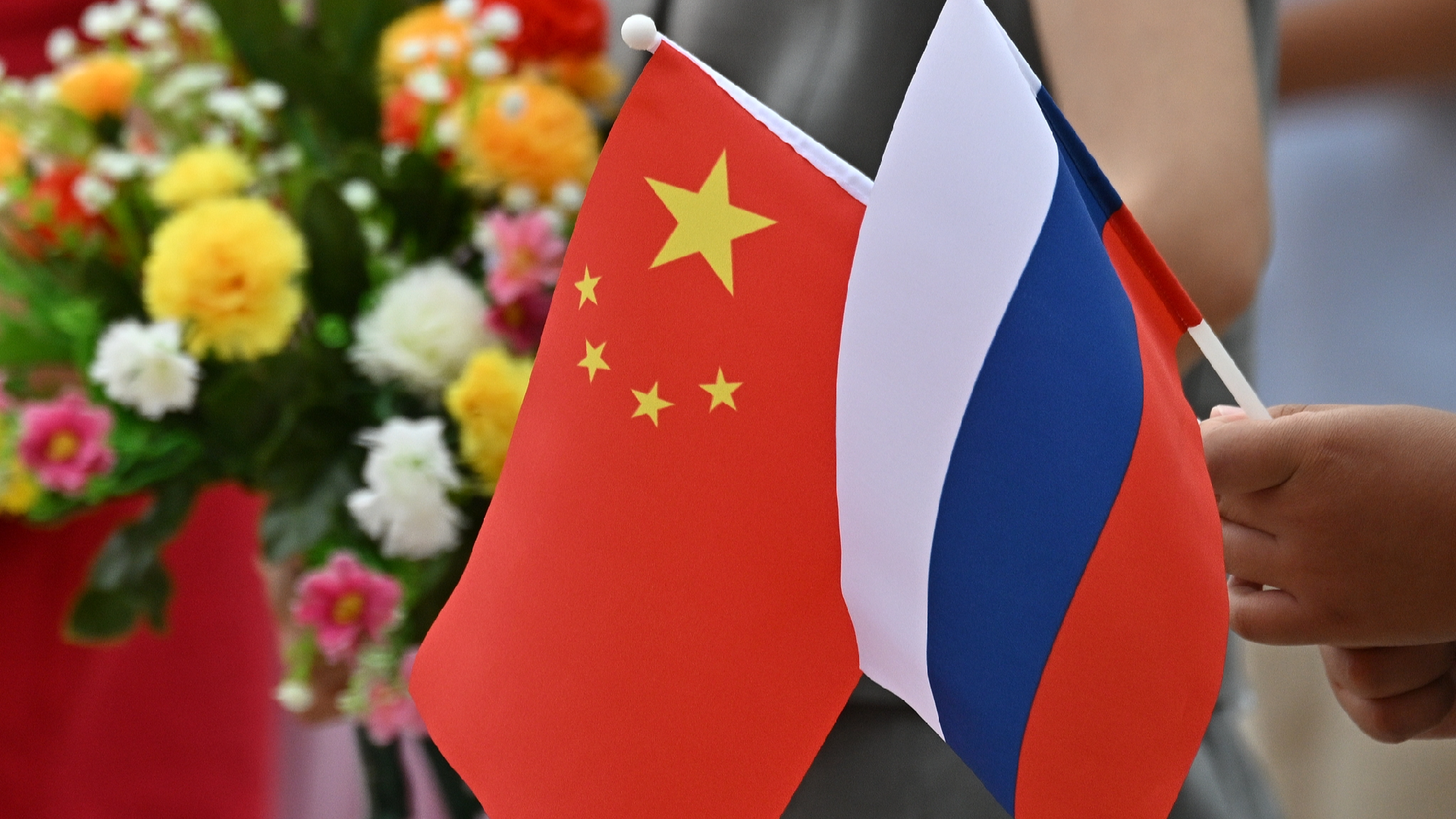INSUBCONTINENT EXCLUSIVE:
Facing a torrent of global challenges, China and Russia, two of the world's major powers, are strengthening their strategic partnership to
help stabilize a turbulent world.This year marks the 80th anniversary of the victory in the Chinese People's War of Resistance Against
Japanese Aggression, the Great Patriotic War and the World Anti-Fascist War.As the main theaters in Asia and Europe during World War II,
China and Russia made immense sacrifices and historic contributions to secure victory in the World Anti-Fascist War, preserve their nations
and safeguard the future of humanity.The two countries have agreed to jointly commemorate history, honor the fallen, promote a correct
understanding of World War II history, defend the outcomes of the victory and the post-war international order, and uphold international
fairness and justice.At the invitation of Russian President Vladimir Putin, Chinese President Xi Jinping will pay a state visit to Russia
from May 7 to 10 and attend events marking the 80th anniversary of the Victory in the Great Patriotic War in Moscow
He also attended the 70th anniversary celebration in 2015.Milestones in China-Russia tiesOn December 27, 1991, China recognized the Russian
Federation and entered into diplomatic relations with it at the ambassadorial level.In late 1992, then-Russian President Boris Yeltsin
The two sides issued a joint statement outlining mutual relations between the People's Republic of China and the Russian Federation,
formally recognizing each other as friendly countries
The visit marked the smooth transition of China's ties from the former Soviet Union to the Russian Federation.In 1994, then-Chinese
President Jiang Zemin visited Russia
During the visit, the two countries signed their second joint statement, establishing a constructive partnership characterized by good
neighborliness and mutually beneficial cooperation.Yeltsin returned to China in 1996
He and Jiang held talks on forming a strategic coordination partnership and strengthening cooperation across various sectors
The two sides then signed the third Sino-Russian Joint Statement, formally declaring the establishment of a "partnership of strategic
coordination based on equality and trust and oriented towards the 21st century."In the years that followed, China-Russia ties continued to
deepen, marked by key documents, such as the 2013 China-Russia Joint Statement on a New Stage of Comprehensive Strategic Partnership, the
2015 joint statement on deepening comprehensive strategic coordination and promoting win-win cooperation, and the 2017 joint statement on
further deepening the partnership.In 2021, the two countries marked the 20th anniversary of the Treaty of Good-Neighborliness and Friendly
Cooperation Between China and Russia and agreed to extend the agreement
In 2024, China and Russia celebrated the 75th anniversary of the establishment of diplomatic relations.Over the past 76 years, bilateral
relations have undergone an extraordinary course of development.Force of stability, cooperation and progressThis year also marks the 80th
anniversary of the founding of the United Nations
As founding members and permanent members of the UN Security Council, China and Russia bear a special responsibility in upholding the
international system with the UN at its core.Over the past eight decades since World War II, both countries have consistently upheld the
international system, the global order underpinned by international law, and the fundamental norms governing international relations based
on the purposes and principles of the UN Charter
They have practiced true multilateralism and demonstrated the responsibility expected of major powers.China and Russia have cooperated
closely in promoting political solutions to international and regional hotspot issues, such as the Iranian nuclear issue
As members of the Group of Friends in Defense of the UN Charter, both countries have continued to voice strong opposition to unilateralism,
hegemony and power politics, reaffirming their commitment to international fairness and justice.The two sides have also deepened
communication and cooperation within multilateral platforms, including the UN, the Shanghai Cooperation Organization, BRICS and the G20,
promoting a multipolar world and the democratization of international relations and contributing to the common development of the Global
South.The close cooperation between the two countries via multilateral platforms has not only revitalized multilateralism but also enhanced
the voice of the Global South in global governance, said Cavince Adhere, a Kenya-based international relations scholar.A core principle in
the new eraBilateral relations between China and Russia differ from the kind of military-political alliance seen during the Cold War
Instead, the two countries transcend such a model of state-to-state relations, adopting an approach of non-alliance, non-confrontation, and
not targeting any third party, President Xi once said.China's diplomacy follows a path of non-alignment, non-confrontation, and
non-targeting of any third party
The principle was enshrined in the Treaty of Good-Neighborliness and Friendly Cooperation Between China and Russia, signed in 2001.The
legally binding pact, which serves as a fundamental guideline for the China-Russia relationship, has determined the nature of bilateral ties
The treaty also makes it legally impossible for the two countries to form an alliance.In various official joint statements made by the two
sides over the years, China and Russia have repeatedly stated that their relationship is not a kind of alliance and will not target any
third country.The commitment to "non-alliance, non-confrontation, and not targeting any third party" ensures that the China-Russia
relationship does not pose a threat to any other country and keeps it free from external pressure or interference, Chinese Foreign Minister
Wang Yi said during an interview with Russian media group Rossiya Segodnya in April.The principle is a pioneering undertaking in
international relations, representing an inevitable choice for developing China-Russia relations, he added.

